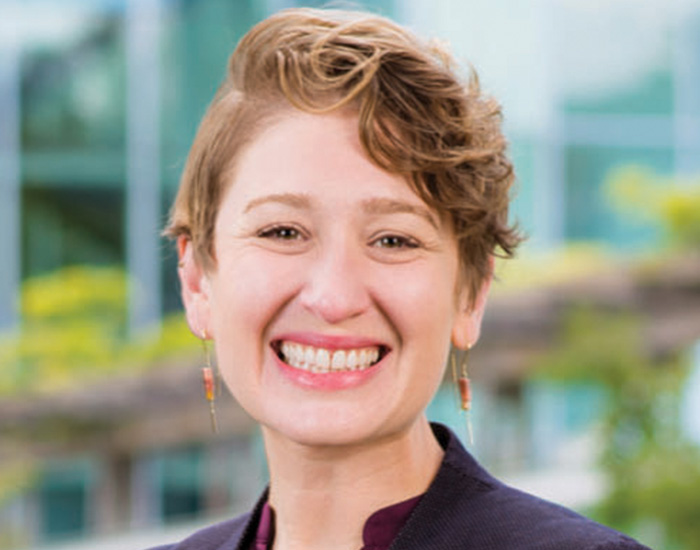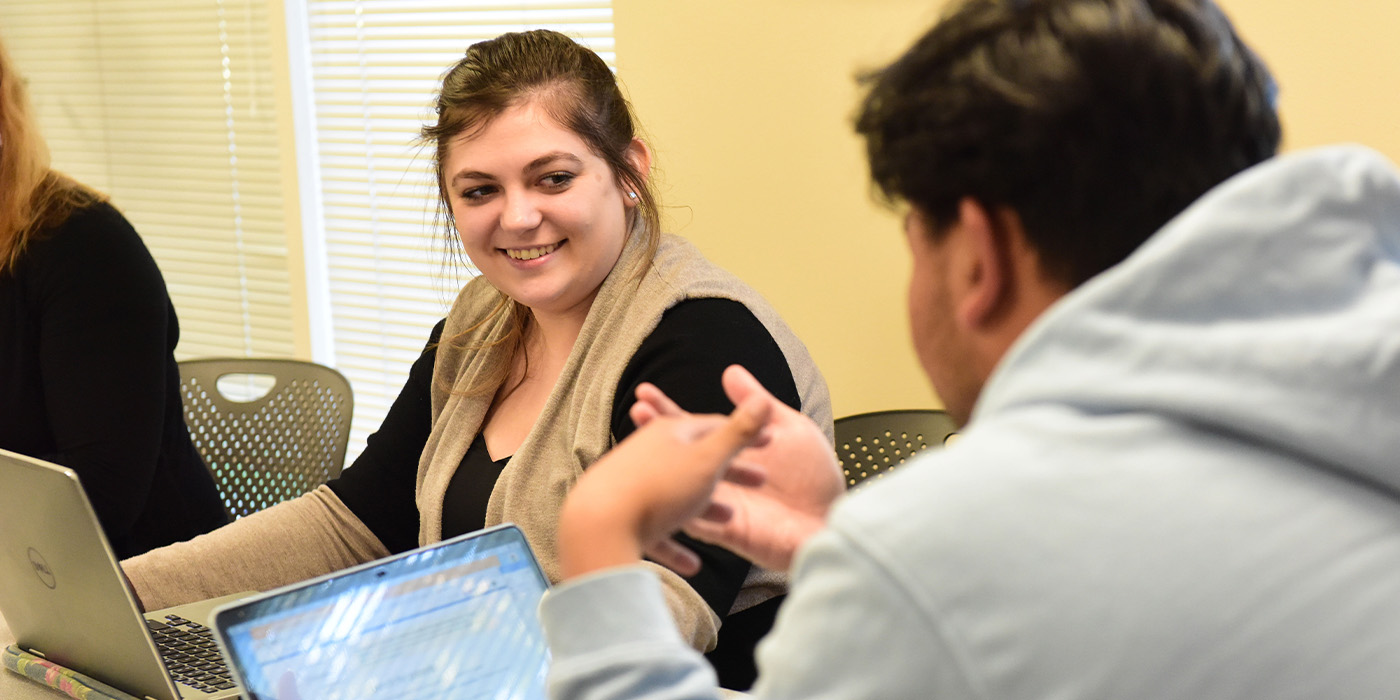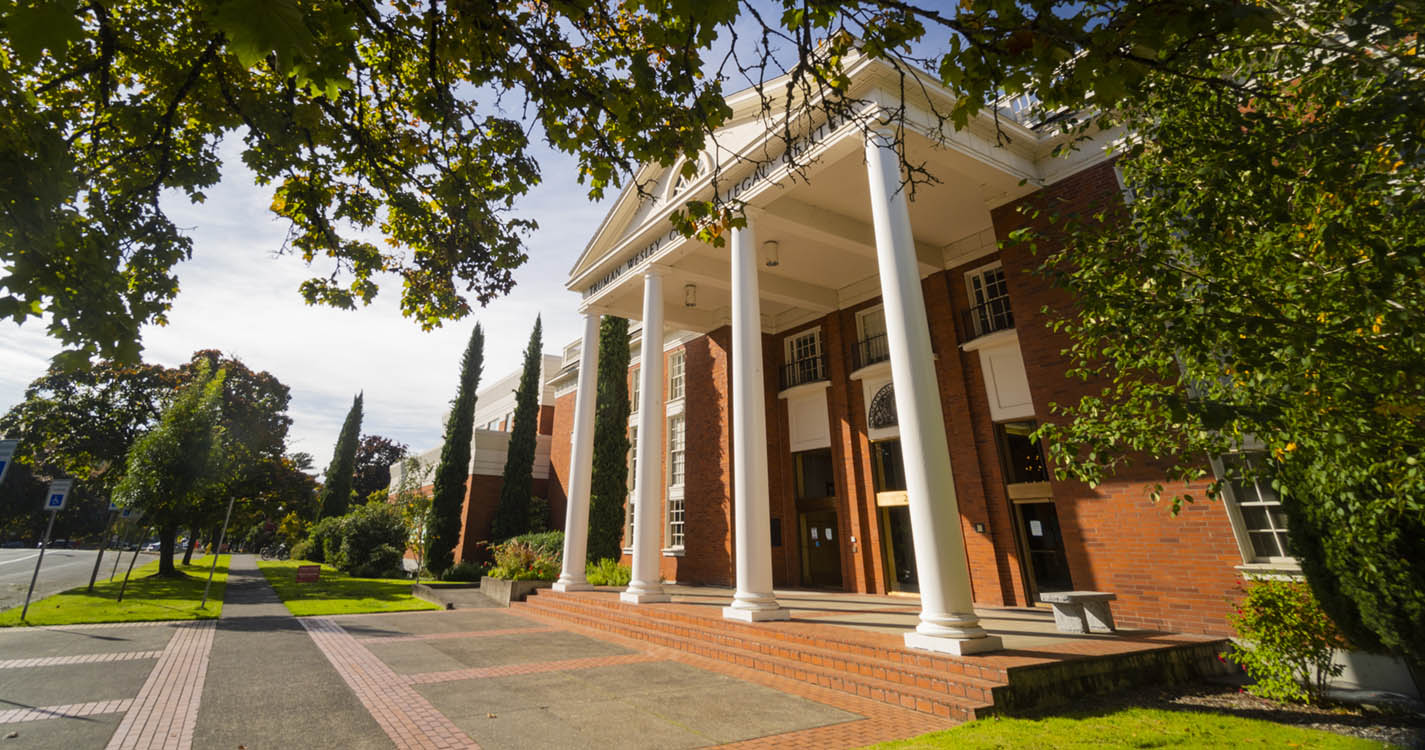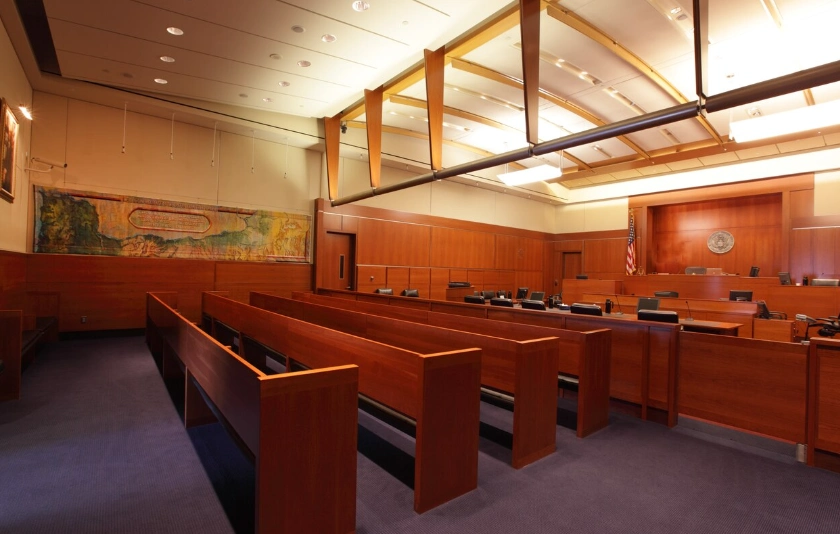During the first two years of law school, students learn to think like a lawyer. Willamette’s Clinical Law Program teaches them to be a lawyer, offering the chance to gain practical skills while taking ownership of real legal cases.
Students’ work in the clinics is heavily supervised by professors who are active and licensed attorneys.

Rebuilding the Immigration Law Clinic
Professor Beth Zilberman joined the faculty in summer 2022 to launch the Immigration Law Clinic and strengthen immigration course offerings.
As a student at Boston College School of Law, Zilberman participated in her own Immigration Clinic. After finding the first-year curriculum difficult to engage with, she says it was the best experience.
“Immigration Clinic was a pivotal turning point in my law school career,” she says. “A lot of students find that in clinic.”In Willamette’s Immigration Clinic, four to eight students work on humanitarian-based cases. They represent clients seeking asylum for persecution suffered abroad, individuals who have survived domestic violence, or people who have been victims of trafficking. The students conduct interviews, plan a course of action, prepare pleadings, complete research and analysis, and attend hearings, all while under the safety net of Zilberman’s watchful eye.
Alondra Duran JD’23 took the Immigration Clinic course this fall to prepare for a future legal career in human rights.
“I feel the clinic has given me the practical experience I needed to feel empowered in pursuing a potential career in immigration,” Duran says. “That’s because I had a balance between the independence in handling my own caseload and the guidance from my professor in teaching us how to become the most effective and impactful attorney we can be for our client.”
Although the work is challenging and most cases aren’t completed in a semester, Duran says giving immigrants a ‘jump-start’ to their cases is gratifying.
Both Duran and Zilberman say the hands-on knowledge gained in the clinic can be key to students’ eventual success as attorneys, regardless of whether they intend to practice immigration law. The law can be complex, but the skills they use can translate into other areas of law, as well, Zilberman explains.
“It’s critical for them to have some sort of experiential learning opportunity before becoming lawyers. The clinic is a great place to get that before entering the real world,” she says. “Having that firsthand experience where they really are in control sets them up to have more confidence in their abilities in the future.”
A passion for immigration law
Zilberman came to Willamette Law after directing and teaching in Immigration Law Clinics at other institutions, including the law schools at the University of Arkansas, where she first met Willamette Law Dean Brian Gallini, and the University of Washington. Originally from the West Coast, she was thrilled to return and share her passion with students in Salem.
Her interest in immigration law stems from her personal background as a Jewish woman and a post-undergraduate stint at a San Francisco nonprofit. While there, she observed lawyers helping international clients with gender-based asylum claims after they escaped persecution. She also saw a way she could help the world.
“A lot of asylum law is based on the persecution that occurred during the Holocaust,” she says. “The idea of helping people seeking a safe life was always part of what I wanted to do to help make the world a better place.”
At Willamette, Zilberman is pleased that the Immigration Clinic fits squarely into the law school’s goals. Public service and advocacy are at the core of immigration law, and they make up two of the College’s five Signature Strengths, areas in which the curriculum is particularly robust and continuing to grow.
The fall semester has included a successful soft launch for the Immigration Clinic, and she knows at least a few of her current students plan to take an Advanced Clinic course next.
“From my first visit to Willamette, I felt a strong sense of community, seeking justice and a passion for public service that really excited me,” she says. “I’ve been so impressed with the students’ capacity for doing good work and doing good work for the world. It’s a perfect fit.”




